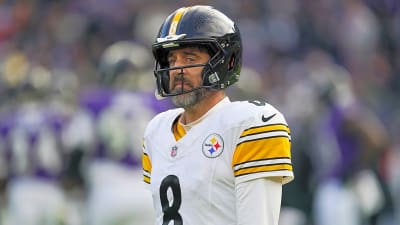
Nick Bosa has unfortunately suffered a season-ending torn ACL in his right knee during the Week 3 victory against Arizona. This is Bosa's third ACL tear in his football career, with previous tears in his right knee during high school and his left knee in 2020 during his second NFL season.
While initial sideline tests suggested he might have avoided an ACL tear, further MRI testing confirmed the severity of the injury. It is, however, a clean tear with no other ligament damage, which should aid in his recovery for next season.
Bosa was off to a strong start in the 2025 season, with sacks in the first two games and a PFF pass-rush grade of 80.3 on 70 pass-rushing snaps, demonstrating his continued elite performance. His absence is a significant blow, as he is considered one of the most critical players on the 49ers' defense, comparable to Fred Warner.
What It Means for the Season
The 49ers will need to shift their expectations from relying on dominant defensive performances to being more resilient as a team. Some games might be won less comfortably (as has been the case so far); others might expose weaknesses where Bosa's presence would have made a difference.
For playoff seeding, it becomes more essential for the team to protect leads, dominate time of possession, avoid turnovers, and control games through other means, such as a strong run game and special teams, as the pass rush will be less effective.
The goal likely remains a deep playoff run, which is supported by their strength of schedule. However, the path is steeper, the margin for error is smaller, and every game counts.
How It Affects All Three Phases
Offense
"The best defense is a good offense" is an adage that suggests proactively attacking an opponent is the best way to protect oneself, as they will be too occupied with defending themselves to stage an attack of their own.
With the 49ers' defense taking a hit, the offense, led by Brock Purdy, will need to elevate its play to an elite level, especially once key players like Brandon Aiyuk and George Kittle return from injury. If the defense falters, the offense will need to produce more points to win potential shootouts. This strategy keeps opponents on their heels, preventing them from exploiting the defense's weaknesses.
Think of how the Detroit Lions survived for most of last season after the loss of Aidan Hutchinson. Their elite offense carried them to the playoffs. And although their engine was leaking heavily by the end of the season and finally died in the Divisional Playoffs against the Commanders, the blueprint is there for one strategy to follow.
The good news for the 49ers is that Purdy is expected to return this week, and he'll get much-needed help with the return of Demarcus Robinson from suspension. With the emergence of Ricky Pearsall as their primary offensive producer and the sooner-than-expected return of Jauan Jennings, this offense can quickly become an elite one.
Special Teams
While currently ranked low, the special teams unit will also need to improve to a top-half unit to help with field position. The signing of Eddy Piñeiro is a key move, as his expected accuracy and confidence in making field goals should provide a psychological boost for fans, players, and coaches.
After his game-winning field goal yesterday, it's safe to say the 49ers have their best option at place-kicker since Robbie Gould. Expect the team to reliably make field goals within a reasonable range. The coverage and return units must also pick up the slack by giving the defense a cushion and helping the offense get better field position. So far, their performance has been lacking.
Defense
No single player can replace Nick Bosa. He is one of the league's top edge rushers, and without him, the 49ers lose a major source of pressure on opposing quarterbacks. This will affect blitz packages and coverage schemes, forcing the defense to adjust.
Defensive Coordinator Robert Saleh will need to get creative in generating pressure, likely increasing the blitz rate and utilizing more twists and stunts. The defense will need a collective effort to compensate for his absence.
The coaching staff will have to lean more on depth players and possibly change defensive alignments. Players like Bryce Huff, Mykel Williams, Sam Okuayinonu, and Yetur Gross-Matos will likely see more snaps. The defensive line will also need to generate a bigger push from the interior to free up edge rushers. Rookies Alfred Collins and CJ West have already started to become a force, and they will need to accelerate their development.
The linebackers have played exceptionally, with All-Pro Fred Warner leading the way and Dee Winters playing out of this world. The secondary, anchored by Deommodore Lenoir's All-Star-caliber play, has been solid. However, rookie Renardo Green is being targeted by opposing offenses and may need help from the coaching staff to disguise coverages.
Upton Stout and Marquese Sigle are a work-in-progress and should keep getting better as the season goes along.
Malik Mustapha's return from the PUP list cannot come soon enough. His presence will be very much needed to pick up the slack on the back end of the secondary.
Short-Term Plans
Internal Solutions: The team believes that the answers are "in the building" and that existing players will need to step up. Immediate depth pieces will likely come from the practice squad, with candidates like Trevis Gipson or Robert Beal Jr. possibly being elevated to the 53-man roster.
Trade Market Consideration: The 49ers will keep an eye on the trade market for a potential edge rusher, especially from teams that fall out of contention. While acquiring a top-tier player like Maxx Crosby is unlikely, second-tier options like Arden Key, who is in the last year of his contract with the struggling Titans, could be a more realistic target. Trey Hendrickson from the Bengals has also been mentioned as a potential trade candidate, but a move for a player of his caliber might be unlikely due to the high cost in draft capital and future salary cap implications.
Conclusion
Nick Bosa's season-ending torn ACL is a severe blow, but not necessarily one that makes the 49ers irrelevant. They still have considerable talent, promising young players, strong coaching, a resilient culture, and a solid foundation that provides a pathway to remain competitive.
While the season's ceiling is lowered and the margin for error is slimmer, how well the team adjusts—both in terms of personnel stepping up and schematic changes—will largely determine whether they can still contend in the NFC.
More must-reads:
- NFL Week 15 winners, losers: Josh Allen's MVP case; Bengals, Chiefs done
- Injuries to monitor after Week 15: Patrick Mahomes news makes Chiefs' nightmare season even worse
- The 'Oldest 4,000-passing-yard seasons' quiz
Breaking News
Trending News
Customize Your Newsletter
 +
+
Get the latest news and rumors, customized to your favorite sports and teams. Emailed daily. Always free!








